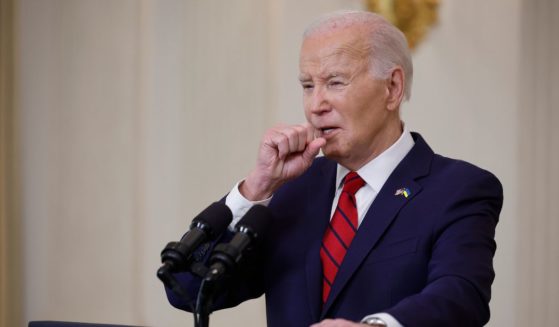Supreme Court Agrees to Hear Case Involving Trump, 17 House Democrats, and the Biden Administration
The Supreme Court on Monday agreed to hear a Biden administration appeal to limit lawsuits filed by members of Congress against the federal government, in a case that stems from disputes over what was the Trump International Hotel in Washington.
The justices said they will review a federal appeals court ruling that allowed a suit by Democratic members of the House Oversight Committee to continue.
They filed their complaint in 2017 over the Trump administration’s refusal to turn over information about the Trump Organization’s lease of the hotel on Pennsylvania Avenue, between the White House and the Capitol.
The family no longer owns the hotel, now a Waldorf Astoria, much of the information eventually was provided and six lawmakers who were part of the case no longer serve in the House.
The Biden Justice Department, however, told the court that it is important to wipe the appellate ruling from the books because it otherwise could lead to a flood of lawsuits from individual members of Congress.
The case will be argued in the fall.
The hotel drew criticism from the start of Donald Trump’s presidency for taking money from Republican politicians, companies and foreign governments eager to curry favor with him.
The hotel is in the federally owned Old Post Office and Trump’s family business held a lease with the General Services Administration.
Trump, while president, refused to sell off his stake in the hotel despite a prohibition in the lease on elected officials obtaining any benefit that “may arise from the lease.”
Democrats alleged that Trump’s ownership of the property created a conflict of interest.
Separately, Trump faced lawsuits over whether he illegally profited off his presidency by owning the hotel in violation of the Constitution’s emoluments clause.
In 2021, the Supreme Court eventually brought an end to those suits, saying the cases were moot once Trump left office.
In the lawmakers’ case, the only documents still at issue are legal opinions.
The Supreme Court is looking only at whether the lawmakers have the legal right, or standing, to sue.
Members of Congress ordinarily cannot march into federal court as individuals or in small groups and assert that their status as lawmakers gives them the right to sue when the administration in power refuses to comply with their demands for information.
But a 95-year-old law allows any seven members of the House Oversight Committee or five senators on that body’s similar committee to request and be provided certain information from federal agencies.
Negotiations have almost always resolved any disputes. But the question of how to enforce the law when efforts at compromise fail has never been resolved.
Since the law’s enactment in 1928, lawmakers sued only twice previously and those cases ended without significant legal rulings.
The Western Journal has reviewed this Associated Press story and may have altered it prior to publication to ensure that it meets our editorial standards.
Truth and Accuracy
We are committed to truth and accuracy in all of our journalism. Read our editorial standards.












